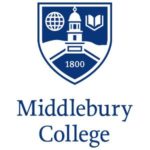 Editor’s Note: The History Teacher sent his eldest daughter off to a private four-year college this Fall, so read my posts on college finance with particular interest, and decided to respond. As you can read, his views on their choices are also influenced by the recent election.
Editor’s Note: The History Teacher sent his eldest daughter off to a private four-year college this Fall, so read my posts on college finance with particular interest, and decided to respond. As you can read, his views on their choices are also influenced by the recent election.
Dear Michael:
These thoughts were prompted by your recent blog post on College Finance Prep. I have been thinking about it ever since, because I did not take your mother’s advice for my daughter. It was a hard decision, as her advice is usually the kind I (as a former teacher and advisor) would give to parents and students: save your money, go to a Community College, then a public college.
Indeed, that is exactly what I did and it turned out just fine. However, recent studies of the impact of globalization and technology on future employment trends have given me cause for concern about the benefits of an education similar to mine. To be honest, I don’t think I would be particularly employable in this new environment. I had always hoped that my daughters would be prepared, but a video on Artificial Intelligence and an article on college education caused me to change my mind about how best ready my daughters for the future. The video predicts the growing importance of Artificial Intelligence and explains how we are close to having AIs do many of the jobs that professionals do today in journalism, law, and medicine. Those with typical college degrees, like mine, would not be employable or particularly valued in such an AI dominated world.
The second is a newspaper report on a study of critical thinking and university education that found:
“Forty-five percent of students made no significant improvement in their critical thinking, reasoning or writing skills during the first two years of college, according to the study. After four years, 36 percent showed no significant gains in these so-called “higher order” thinking skills.”
I vividly recall an HR executive at a tech company, lamenting to me the lack of critical thinking ability of many of her recent hires – from the local public university – who only knew how to solve problems by going through check lists. If the solution was not on the list, they could not solve the problem.
Without developing critical thinking skills, I fear that my daughter would lead an unreflective and unfulfilling life. In addition, she would not be able to compete with AIs and she would fall through the social and economic cracks of the AI-dominated future. Thus, after much consideration with my wife, we decided to sacrifice a great deal to financially support our daughter through a very expensive, private liberal arts college.
We had three reasons for doing so and one of them already seems to be paying off in her freshman year. The most important is the quality of the teaching she is receiving. She is taking interesting classes (not your usual Introductory courses), working really hard, and stretching her knowledge, her critical thinking skills and exercising her creativity. There is a great deal of interaction with the professors and other students as the classes are small. I am most pleased that she is developing skills of social and human collaboration. She is learning and maturing considerably. This compares favorably to her former high school classmates who are in freshman classes of 500 or more at a nearby public university.
The second is her ability to make useful connections with her professors (who can recommend her to grad schools) and her upwardly mobile classmates (who might help her in the future with employment). We shall have to wait and see if this has any long term benefit.
Finally, there exists a cachet of being at a top ranked college which might help her with both grad school applications and with employment. Am I wrong here? From your personal experience, has your Harvard education helped you in this regard?[1] I think it is probably the least important reason, but it is still a factor.
I do not mean to argue that all public institutions do not provide critical thinking skills or that only private liberal arts institutions do, but that students need to select their college choices with this in mind. Thus, if they can find a public university with an honors program and/or whose classes emphasize reading and writing critical essays and research papers, they should take up the opportunity and challenge. According to Dr. Aram: “Students who took courses heavy on both reading (more than 40 pages a week) and writing (more than 20 pages in a semester) showed higher rates of learning.” This should be a minimum standard for an expensive private university. The key is for students and parents to be informed consumers.
Editor: And now, some further thoughts from The History Teacher, prompted by the election results:
I am writing this sitting in front of my computer still stunned at the election results and listening to Gregorian Chants (they suit the raining weather and my mood). Indeed, I woke up this morning dreaming about a war with Iran.
I feel like one of the “good Germans” who were Social Democrats or Volks Partie and voted against but then could only just watch in horror. Well, as Marx wrote about Napoleon III, to paraphrase, everything in history happens twice, the first time it is a tragedy, the second it is a farce. I tried to escape by reading PG Wodehouse and delving into the past (those sensible Plantagenets.)
 I feel too drained to have any emotion at this stage. This feeling is family wide, except for the dog: Mary and my daughters are very depressed. We are all in mourning. Anna cried and Cecilia[2] said that she and her friends at Middlebury are walking around with vacant expressions on their faces. I have stopped watching the TV and reading the papers for the nonce: just too masochistic.
I feel too drained to have any emotion at this stage. This feeling is family wide, except for the dog: Mary and my daughters are very depressed. We are all in mourning. Anna cried and Cecilia[2] said that she and her friends at Middlebury are walking around with vacant expressions on their faces. I have stopped watching the TV and reading the papers for the nonce: just too masochistic.
Forced to my own resources, I am trying to make sense of it all. To me, it boils down to education or the lack thereof (surprise, me being a teacher). Trump supporters with their racism, misogyny, and grievances are the product of a refusal to recognize reality (France constructing the Maginot Line—remember?) and a lack of critical thinking skills. They have learned how to memorize and use check lists to solve problems, but not to analyze. As a consequence, the modern economy with its emphasis on technology, globalization, and the absolute requirement of the ability to work with diverse teams are leaving them behind. Trump might as well try to stop the tide as to stop this process.
It is going to get worse as Artificial Intelligence becomes more and more utilized. The latter will threaten the livelihoods of the college educated, particularly those who did not develop critical thinking skills.
[1] Banker’s Response: I didn’t enjoy Harvard at all but I’ll admit it’s been totally useful as a door-opening brand.
[2] We made up these names to maintain the fun of anonymity!
Please see related posts:
529 Accounts are for Grandparents
Want to See Something Really Scary? College Tuition
Post read (158) times.
